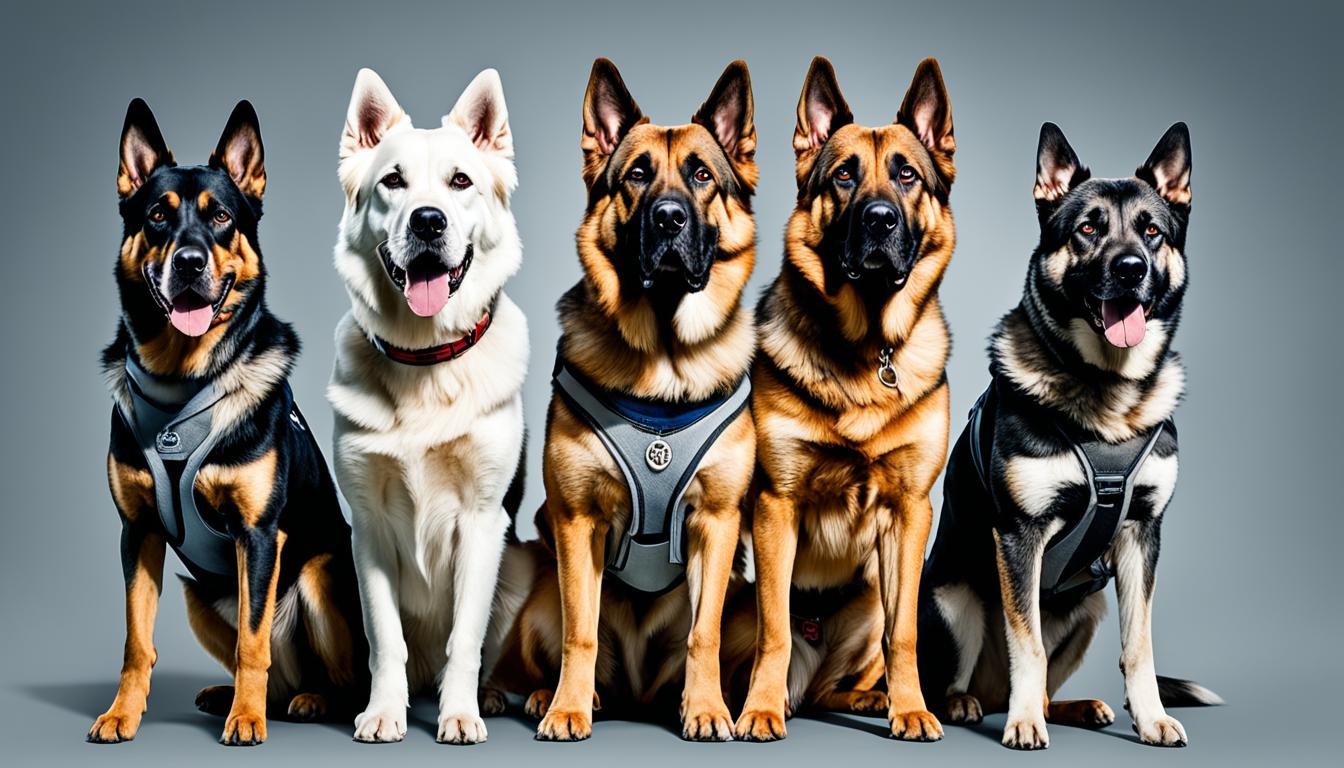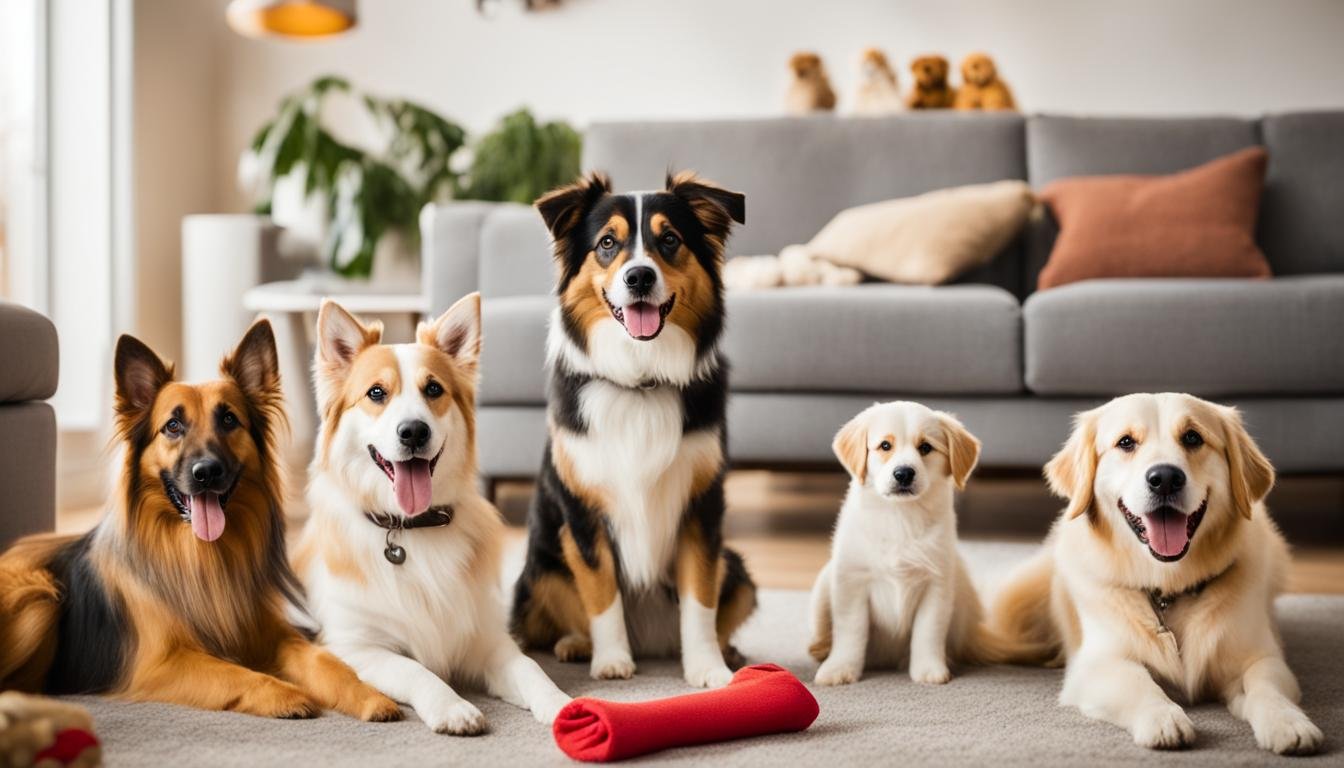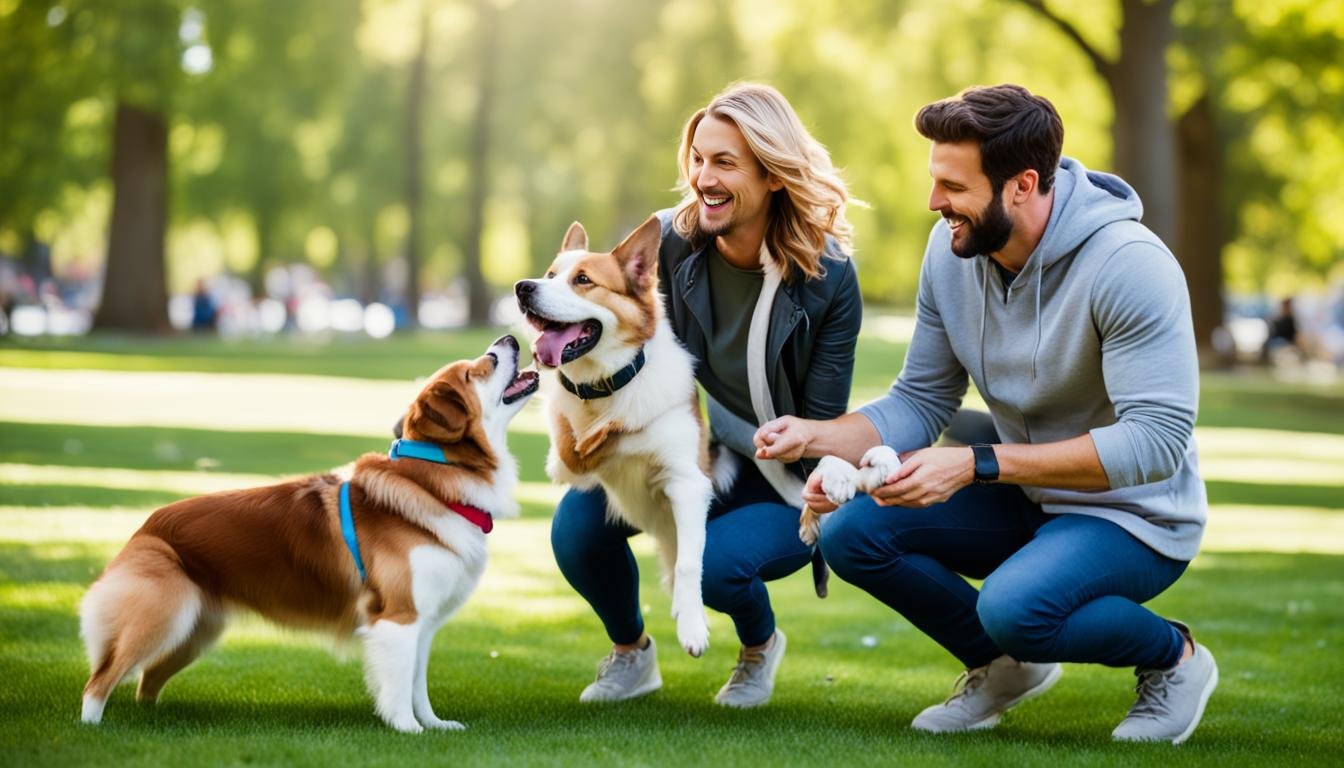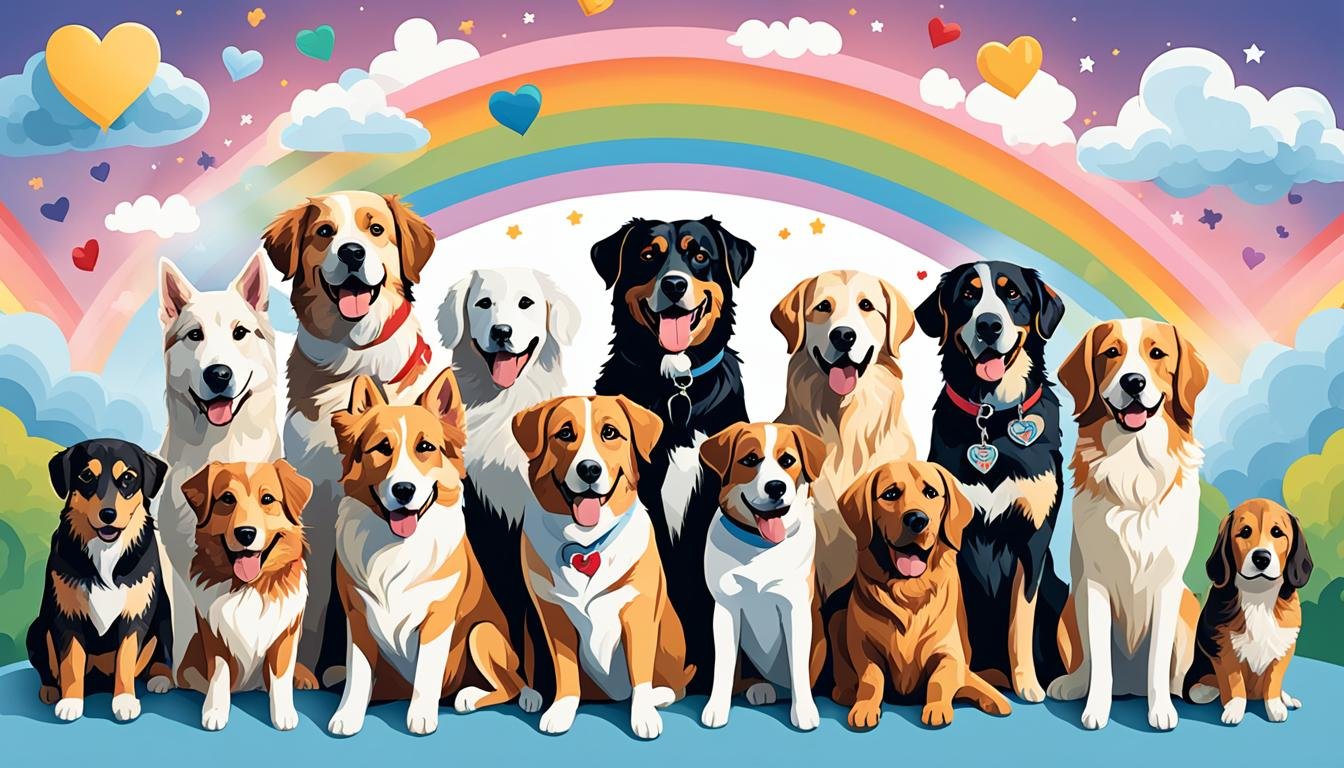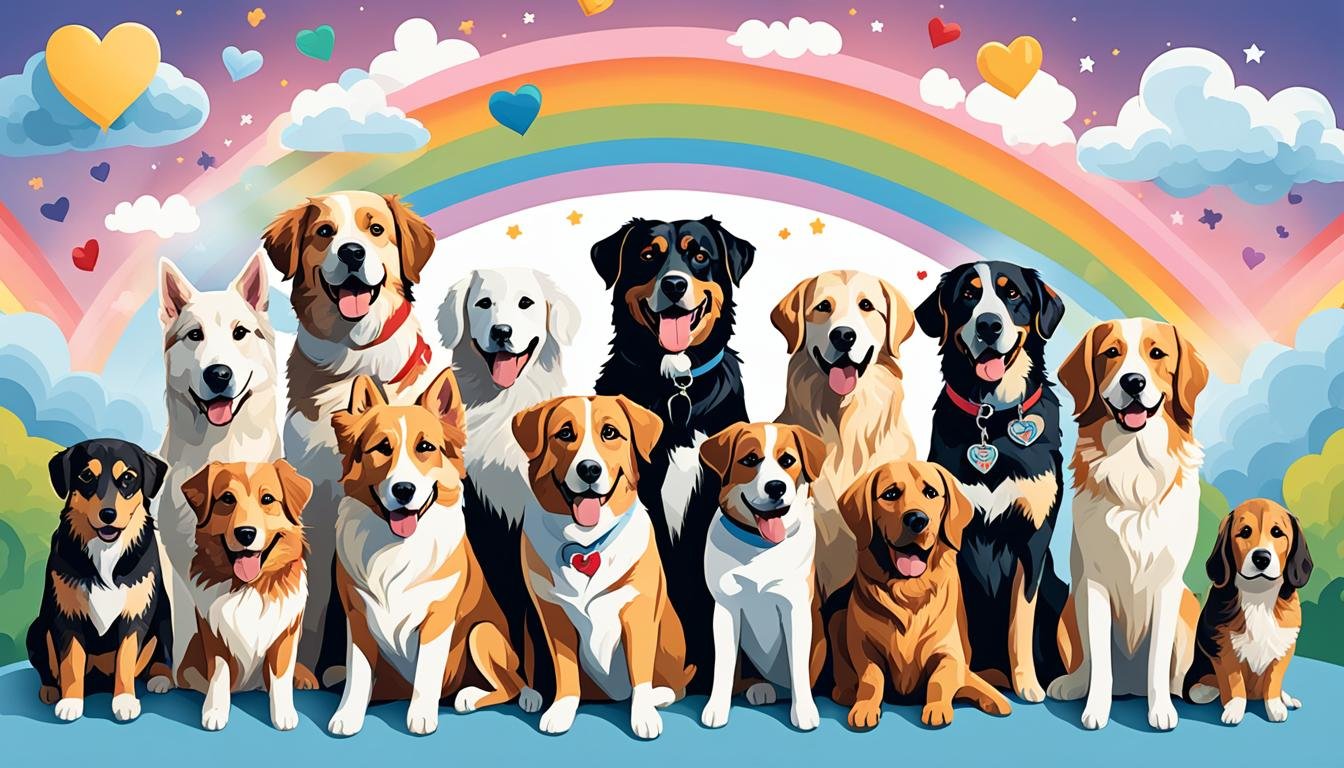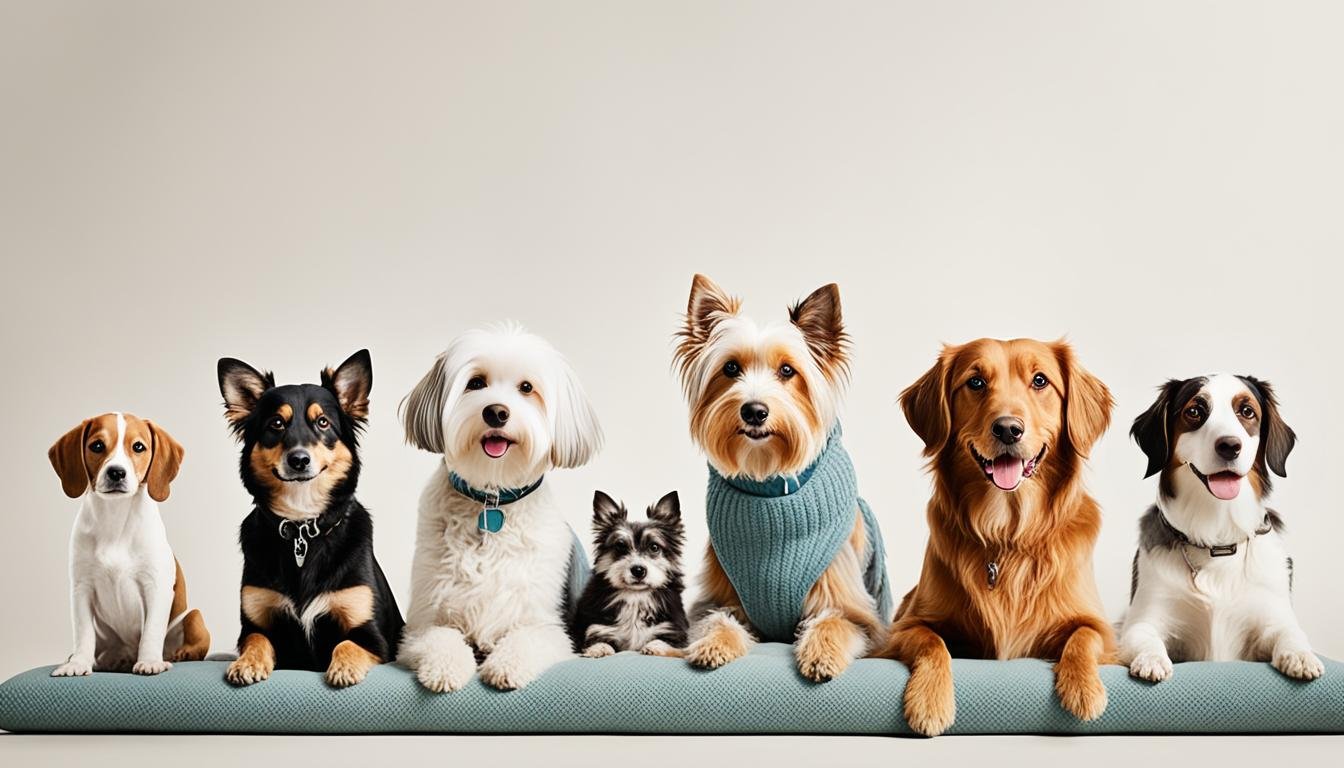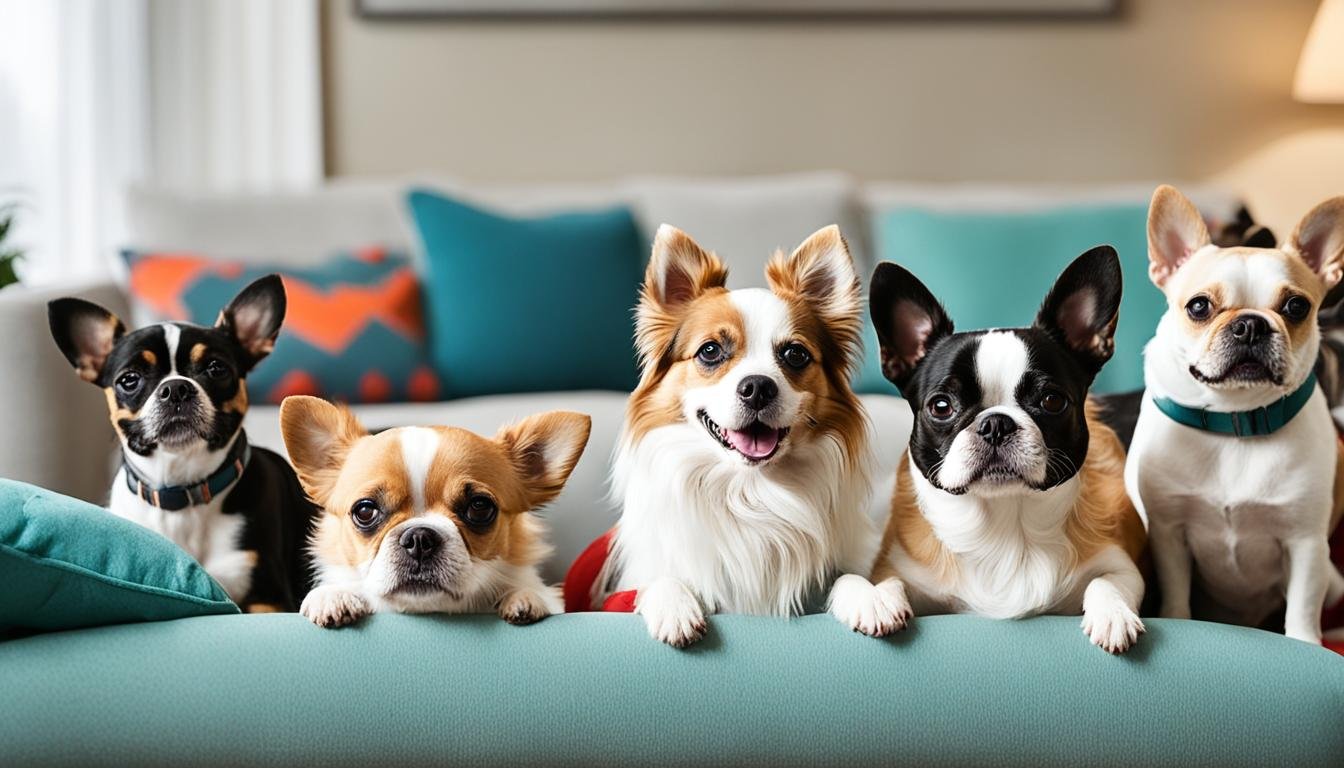Did you know that some dog breeds are specifically bred to be highly effective guard dogs? With a life expectancy of up to 16 years, these loyal companions can provide your family with unparalleled protection and security1. From the powerful Akita to the formidable Tibetan Mastiff, this article will explore the best guard dog breeds and help you determine which one is the ideal fit for your home and lifestyle.
Key Takeaways
- Guard dogs are bred to be alert, strong, and protective of their families.
- The top guard dog breeds include Akitas, Belgian Malinois, and Doberman Pinschers.
- Key factors to consider when choosing a guard dog include size, temperament, and training requirements.
- Proper socialization and training are essential for guard dogs to be effective and well-behaved.
- Guard dogs can provide a powerful deterrent against potential intruders and offer peace of mind for homeowners.
Introduction to Guard Dog Breeds
Guard dogs have been cherished companions and reliable protectors for centuries. These remarkable canines are known for their fearless nature, intimidating size, and unwavering loyalty to their human families2. While watchdogs may simply bark to alert their owners, true guard dogs are equipped with the training and temperament to actively defend against potential threats3.
When selecting the best guard dog breed, it’s crucial to consider factors like obedience, socialization, and the dog’s overall personality2. Certain breeds, such as Siberian Huskies, were not initially bred for guard duties but rather for other purposes like sled pulling3. In contrast, guard dogs are often categorized as Working Dogs, which were specifically bred for tasks like guarding, herding, and rescue work3.
Among the most renowned guard dog breeds are the American Pitbull Terrier3, Rhodesian Ridgeback3, Belgian Malinois3, Rottweiler3, Doberman Pinscher3, Cane Corso3, and German Shepherd3. These dogs are often utilized in law enforcement and military applications, showcasing their exceptional protective instincts and trainability3.
Whether for personal security or as loyal companions, guard dog breeds offer a unique blend of strength, intelligence, and unwavering devotion2. As you explore the world of guard dogs, keep in mind the importance of proper training, socialization, and responsible ownership to ensure the safety and well-being of both your family and the canine protector2.
which breed is the best guard dog?
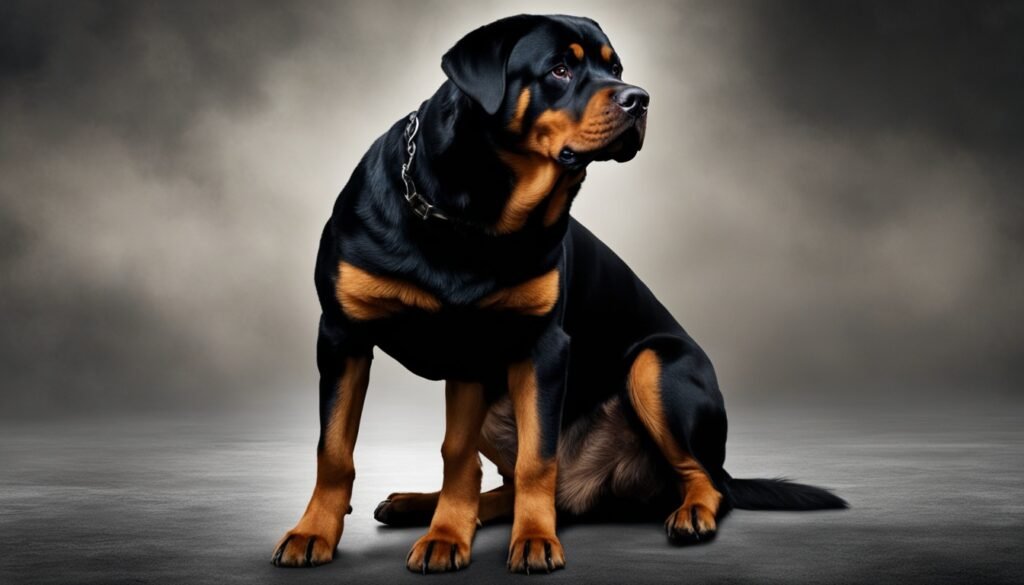
When it comes to finding the best guard dog breed, several canines stand out for their exceptional protective instincts and capabilities. The Akita, with its loyalty and natural suspicion of strangers, is a formidable choice4. The Belgian Malinois and German Shepherd are highly trainable and favored by law enforcement and military units4. The Bullmastiff and Cane Corso possess impressive size and strength, while the Doberman Pinscher and Rottweiler are known for their alertness and guarding abilities4.
Evaluating the Top Guard Dog Breeds
Additionally, the Komondor, Rhodesian Ridgeback, and Tibetan Mastiff are all breeds that have historically been used as guard dogs, with the Tibetan Mastiff often considered the ultimate protector5. Evaluating the unique traits and temperaments of these top guard dog breeds can help determine the best fit for your family’s security needs.
| Breed | Height | Weight | Life Expectancy |
|---|---|---|---|
| Airedale Terrier | 23 inches | 50 to 70 pounds | 11 to 14 years |
| Tibetan Mastiff | 24 to 30 inches | 70 to 160 pounds | 10 to 12 years |
| Caucasian Shepherd Dog | 23 to 30 inches | 100 to 170 pounds | 9 to 12 years |
| Akita | 24 to 28 inches | 70 to 130 pounds | 10 to 14 years |
| American Staffordshire Terrier | 17 to 19 inches | 40 to 70 pounds | 12 to 16 years |
| Giant Schnauzer | 24 to 28 inches | 55 to 85 pounds | 12 to 15 years |
| Appenzeller Sennenhund | 19 to 22 inches | 50 to 70 pounds | 12 to 15 years |
| Beauceron | Not specified | Not specified | Not specified |
The German Shepherds are known for being brave, gentle, and loving, making them great for families6. Rottweilers are among the smartest breeds in the world and can become loving family pets with proper training6. Doberman Pinschers are intelligent, intimidating guard dogs that are cautious around strangers6. Boxers are friendly and fun-loving guard dogs that require lots of exercise due to their high energy levels6. Bernese Mountain Dogs are great watchdogs that will bark if something suspicious is going on and are playful around children6. Giant Schnauzers are loyal and intelligent guard dogs that grow to be very large with an intimidating look6. Great Danes have a loud bark and are good at scaring off intruders, known for being gentle and patient with kids6. Great Pyrenees can make loyal and protective guard dogs but can be challenging to train and require attention from a young age6. Saint Bernards are generally very friendly with kids and families, with a loud bark that may deter intruders6. Bullmastiffs are excellent guard dogs that recognize their owners as their pack and are always aware of their surroundings6.
“Guard dogs are not just about size and strength – they need to be intelligent, trainable, and have a strong protective instinct.”
Characteristics of Effective Guard Dogs
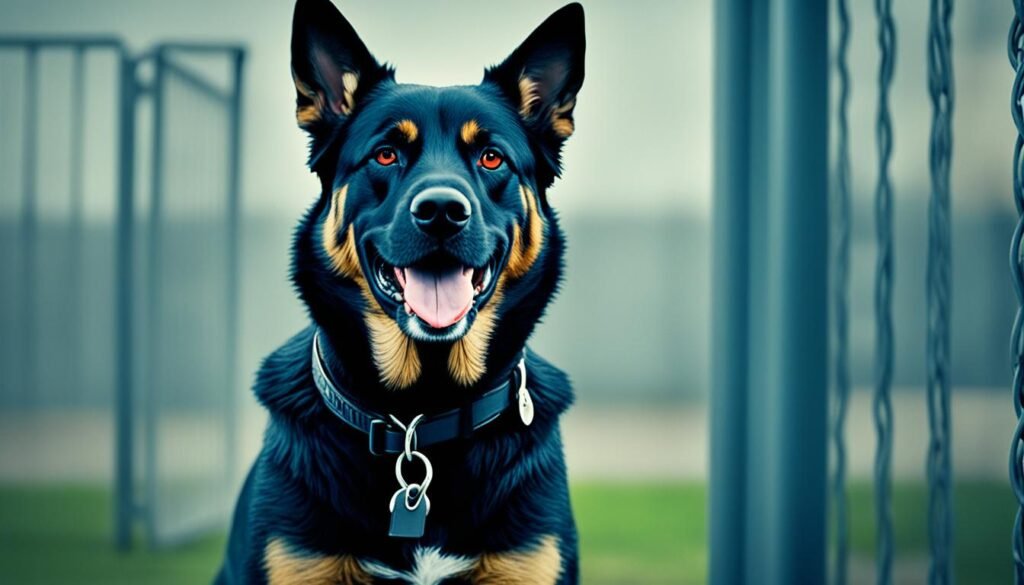
When it comes to safeguarding your home and loved ones, the characteristics of an effective guard dog are paramount. These powerful breeds possess a unique blend of physical and behavioral traits that make them well-suited for protection duties7.
A large, intimidating appearance is one of the key attributes of an excellent guard dog. Breeds like Doberman Pinschers, Boxers, and German Shepherds are known for their athletic builds and commanding presence, which can help deter potential intruders7. However, these guard dogs’ true strength lies in their fearlessness and strong protective instinct, which drive them to aggressively defend their territory and loved ones8.
Loyalty is another essential characteristic of a reliable guard dog. Breeds such as Rottweilers and Bernese Mountain Dogs are renowned for their unwavering devotion to their owners, forming deep bonds that inspire them to fiercely guard their families7. Equally important is the trait of alertness, as guard dogs must be vigilant in detecting and responding to potential threats7.
While these traits make guard dogs excellent protectors, they also require extensive obedience training and socialization to ensure they can be controlled and directed appropriately8. Proper training helps strike a balance between the dog’s natural aggression and the need for docility, ensuring the safety of both the dog and the people it protects7.
Ultimately, the characteristics that make an effective guard dog are a combination of physical size, fearlessness, loyalty, alertness, and the ability to be trained and socialized. By understanding and properly channeling these traits, you can ensure your guard dog is a reliable and trustworthy protector784.
| Breed | Characteristics |
|---|---|
| Doberman Pinscher | Extremely athletic, require a lot of daily exercise and activity7, recognized as the fifth-smartest dog breed in the world8, known for their protective nature and loyalty4 |
| Boxer | Known for their athleticism and need a significant amount of exercise from the first day they enter your home7 |
| German Shepherd | Highly loyal protectors recognized for their exceptional obedience when properly trained7, commonly used by the police force as executive protection dogs4 |
| Rottweiler | Considered one of the world’s smartest breeds and can become loving family pets with proper training7, historically known as the butchers’ dog, was originally used to herd livestock and pull carts of butchered meat to markets8, have gained a reputation for aggression over the years4 |
| Bernese Mountain Dog | Large-sized and very playful dogs that need regular grooming due to their heavy coats7 |
| Giant Schnauzer | Grow to be very large and require daily brushing and grooming7 |
| Great Dane | Have a loud bark that is effective at scaring intruders away, but are very gentle and patient with children7, described as protectors bred for over 400 years4 |
| Great Pyrenees | Large and furry, making them loyal and protective guard dogs that require intensive training from a young age7 |
| Saint Bernard | Typically great with kids and families, featuring a loud bark that can scare intruders away7 |
| Bullmastiff | Highly protective and need stern training from a young age to obey commands and avoid aggressiveness7, known for its physical strength, protection instincts, courage, and extreme loyalty8, capable of using its strength to knock over or block intruders on the property8 |
| Rhodesian Ridgeback | Considered a selective barking breed, only barking for good reasons8, possess a strong prey drive due to their historical use in hunting large animals4 |
| Cane Corso | Identified for their history as bodyguard dogs, tracing back to Ancient Roman Times4 |
“Guard dogs have been bred for hundreds of years to protect and defend their family or land, engaging in actions such as biting or putting themselves between threats and family.”8
Proper training and socialization are crucial for ensuring that these powerful guard dogs can be controlled and directed appropriately, striking a balance between their natural aggression and the need for docility. By understanding and channeling the unique characteristics of effective guard dogs, you can ensure your furry protector is a reliable and trustworthy companion.
Conclusion
In conclusion, selecting the best guard dog breeds requires careful consideration of a variety of factors, from physical size and appearance to temperament and trainability. The top guard dog breeds, including the Akita, Belgian Malinois, Bullmastiff, Cane Corso, Doberman Pinscher, German Shepherd, Komondor, Rhodesian Ridgeback, Rottweiler, and Tibetan Mastiff, each possess unique characteristics that make them well-suited for protection duties9. By understanding the specific traits and needs of these breeds, families can make an informed decision to choose the guard dog that will best meet their security requirements and integrate seamlessly into their household10.
With expert guidance and proper training, these loyal, fearless companions can provide invaluable protection and peace of mind11. Whether you’re seeking a formidable home protector for your family or a vigilant security dog for your property, the top guard dog breeds offer a range of options to suit your specific needs and preferences. By carefully evaluating these breeds and their characteristics, you can ensure that your chosen guard dog not only keeps your loved ones safe but also becomes a beloved member of your family.
Ultimately, the best guard dog for your home and family security is the one that aligns with your lifestyle, environment, and personal preferences. With the right breed and proper training, you can rest assured that your guard dog will be a reliable and trustworthy companion, providing the peace of mind you deserve.
FAQ
What are the top guard dog breeds for ultimate protection?
The top guard dog breeds include the Akita, Belgian Malinois, Bullmastiff, Cane Corso, Doberman Pinscher, German Shepherd, Komondor, Rhodesian Ridgeback, Rottweiler, and Tibetan Mastiff. These breeds are known for their fearlessness, intimidating size and appearance, and natural instinct to guard and defend their families.
What characteristics make an effective guard dog?
Effective guard dogs possess a unique set of characteristics, including a large, imposing physical presence to deter potential intruders, fearlessness and a strong protective instinct, loyalty to their owners, and alertness to potential threats. They also require extensive obedience training and socialization to ensure they can be controlled and directed appropriately.
How can I determine the best guard dog breed for my family’s security needs?
When selecting the best guard dog breed, it’s crucial to consider factors like obedience, socialization, and the dog’s overall personality. Evaluating the unique traits and temperaments of the top guard dog breeds, such as the Akita, Belgian Malinois, Bullmastiff, and others, can help you determine the best fit for your family’s security requirements.

